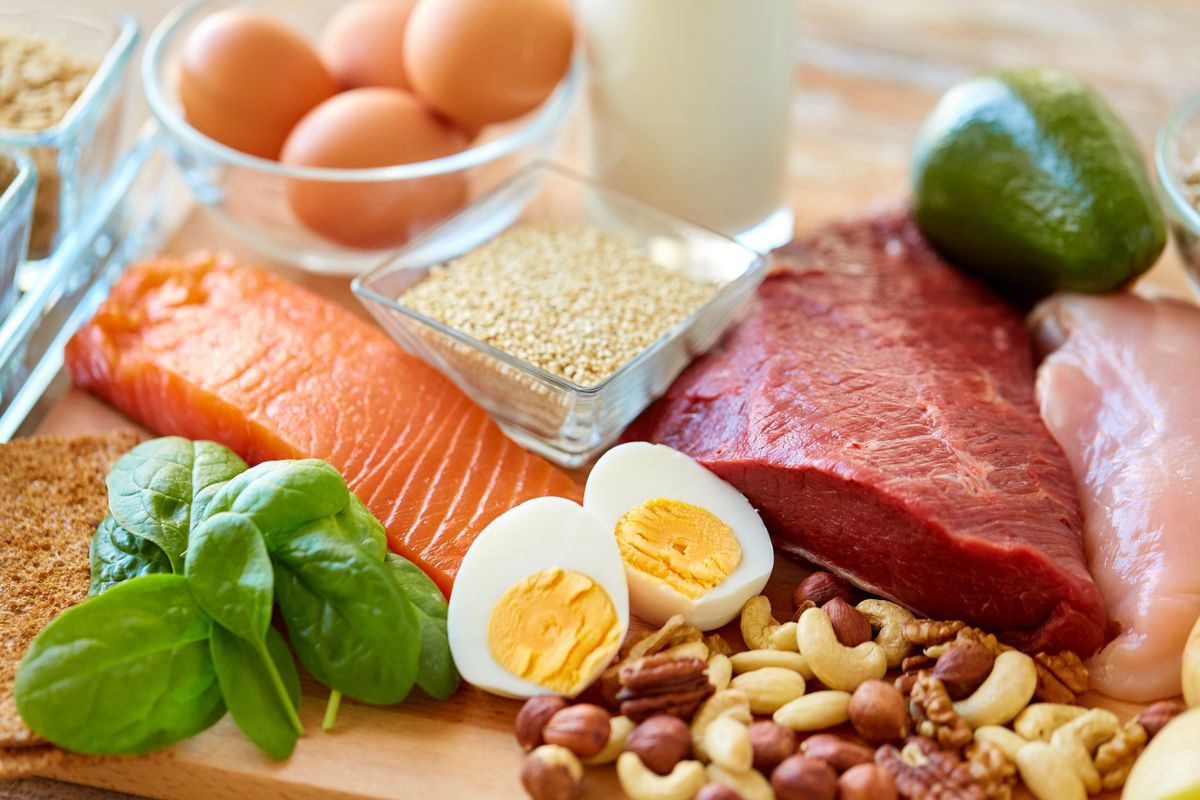Losing weight in a sustainable and health-conscious manner requires sufficient protein intake within your daily diet. Protein offers extended satiety and diminishes hunger hormones. Furthermore, it boasts a greater Thermic Effect of Food (TEF) compared to fats or carbohydrates, resulting in increased calorie burning upon consumption. Additionally, protein contributes to the development of muscle mass.
While meeting your protein needs is vital for effective weight loss, the quality of the protein consumed is equally crucial. The market is flooded with subpar, nutrient-deficient protein sources. Despite understanding the pivotal role of a high-protein diet in achieving meal satisfaction and sustaining weight loss endeavors, many of us find ourselves stuck in a pattern of relying solely on a limited array of protein sources. This not only leads to palate fatigue but also deprives the body of the health-enhancing nutrients present in often overlooked, protein-rich foods.
What qualifies certain foods as effective protein sources for weight loss?
While it's true that protein, in general, can contribute to weight loss, there are specific high-protein foods that outshine others in terms of dieting benefits. These foods adhere to specific criteria:
Low fat content: Protein-rich foods with low fat content inherently have fewer calories. Weight loss is achieved by consuming fewer calories than expended, making low-fat protein foods advantageous for this purpose.
Low-calorie profile: Low-calorie protein foods often align with low-fat options. Typically, protein-rich foods are low in calories due to their limited fat content. Alternatively, protein foods can also be low in calories if they are low in carbohydrates, as carbs are another calorie-dense macronutrient.
High protein content: Naturally, for those pursuing a weight loss regimen centered on high protein intake, it's crucial that these protein-rich foods indeed boast elevated protein content.
But what exactly constitutes a high-protein content? As outlined by the FDA, this is determined by the percentage of protein relative to the recommended daily intake (RDI) of protein, which is set at 50 grams:
- Good protein sources contain between 10 and 19 percent of your RDI, equivalent to 5 to 9.5 grams of protein.
- Excellent protein sources contain 20 percent or more of your RDI, equal to over 10 grams of protein.
Optimal protein sources are those that fall into the "good" or "excellent" categories of protein content.
Our compilation of protein-rich foods to aid in weight loss Whether you have a penchant for seafood, hold a strong affection for dairy products, or adhere to a meatless dietary regimen, we present the optimal choices for supporting your waistline.
Continue reading to enhance your awareness and make certain to include several of our recommendations in your shopping list for your next visit to the grocery store.
Exploring Protein-Rich Foods for Effective Weight Loss
1) Eggs – 6 grams per egg
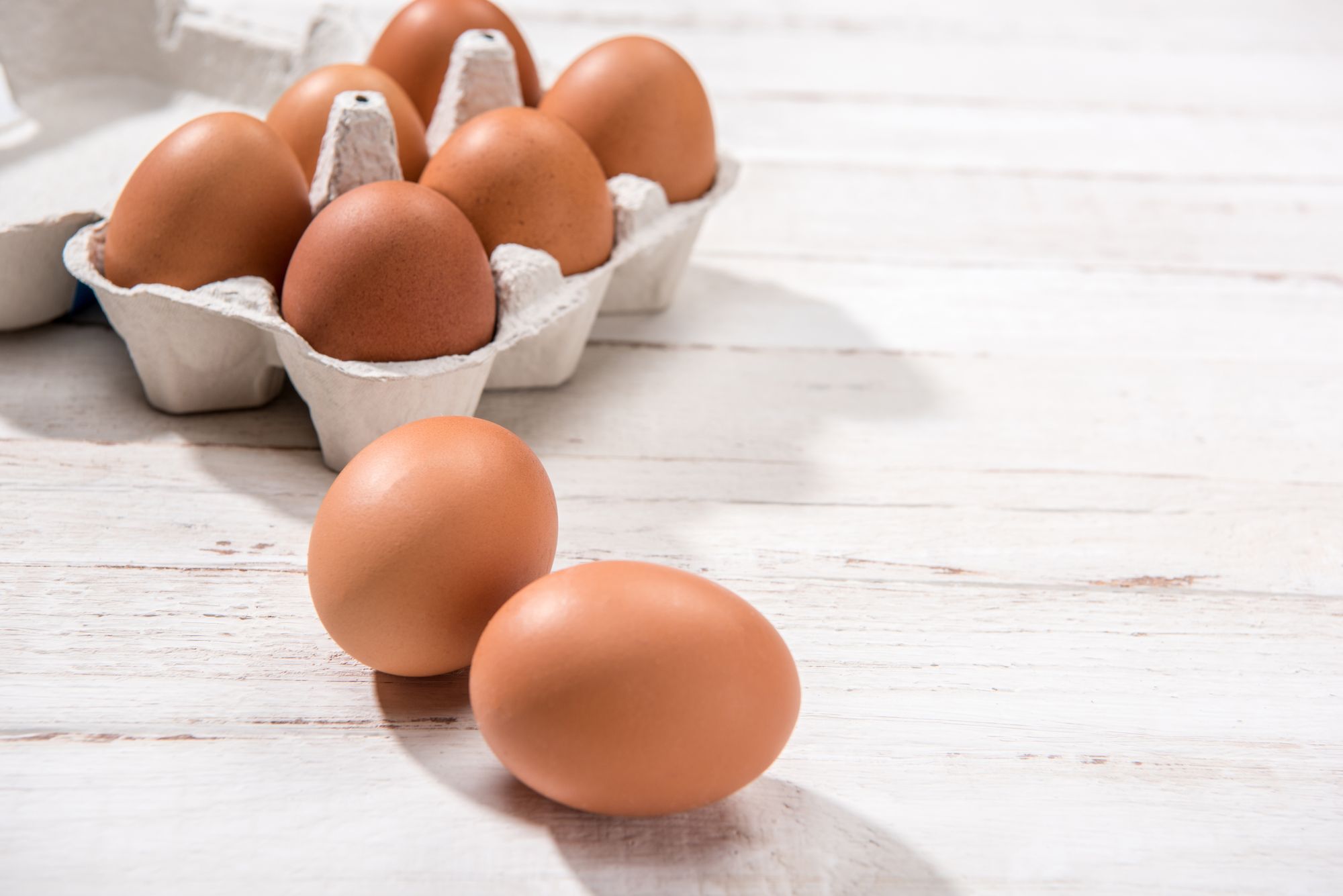
Eggs offer a compact yet powerful protein punch. Beyond their versatility in preparation, eggs contain approximately 70 calories each, coupled with 6 grams of protein. This protein content plays a vital role in curbing appetite and preventing later-day binge eating. Research underlines that integrating eggs into breakfast routines leads to reduced calorie consumption over the ensuing 24 hours. Additionally, eggs are rich in vitamin D, addressing the correlation between inadequate vitamin D levels and increased abdominal fat. For convenience, hard-boiled eggs can serve as a portable source of protein for those with busy schedules.
2) Beans – 7.5 grams per 1/2 cup, cooked
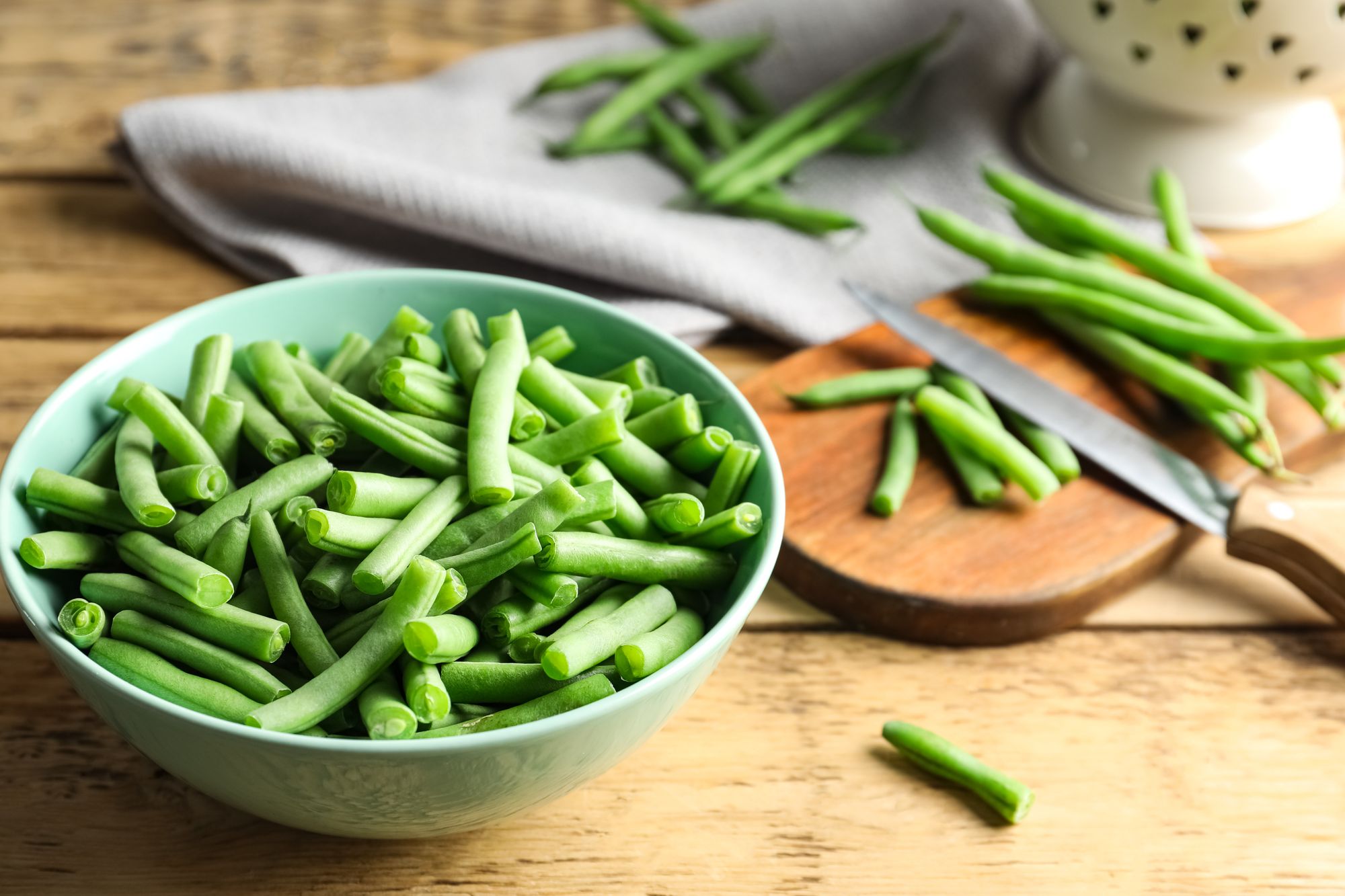
Beans transcend their protein content by being densely packed with fiber. This protein-fiber combination extends feelings of fullness, thereby curtailing calorie intake during meals and reducing overindulgence in between meals. Research supports the idea that incorporating beans as a protein source during a meal results in a 12% reduction in calorie consumption during the subsequent meal, emphasizing the satiety induced by beans. Given their versatility, affordability, and sustainability, beans emerge as a top-tier protein source for those aiming for weight loss.
3) Greek Yogurt – 17 grams per 5.3 ounces
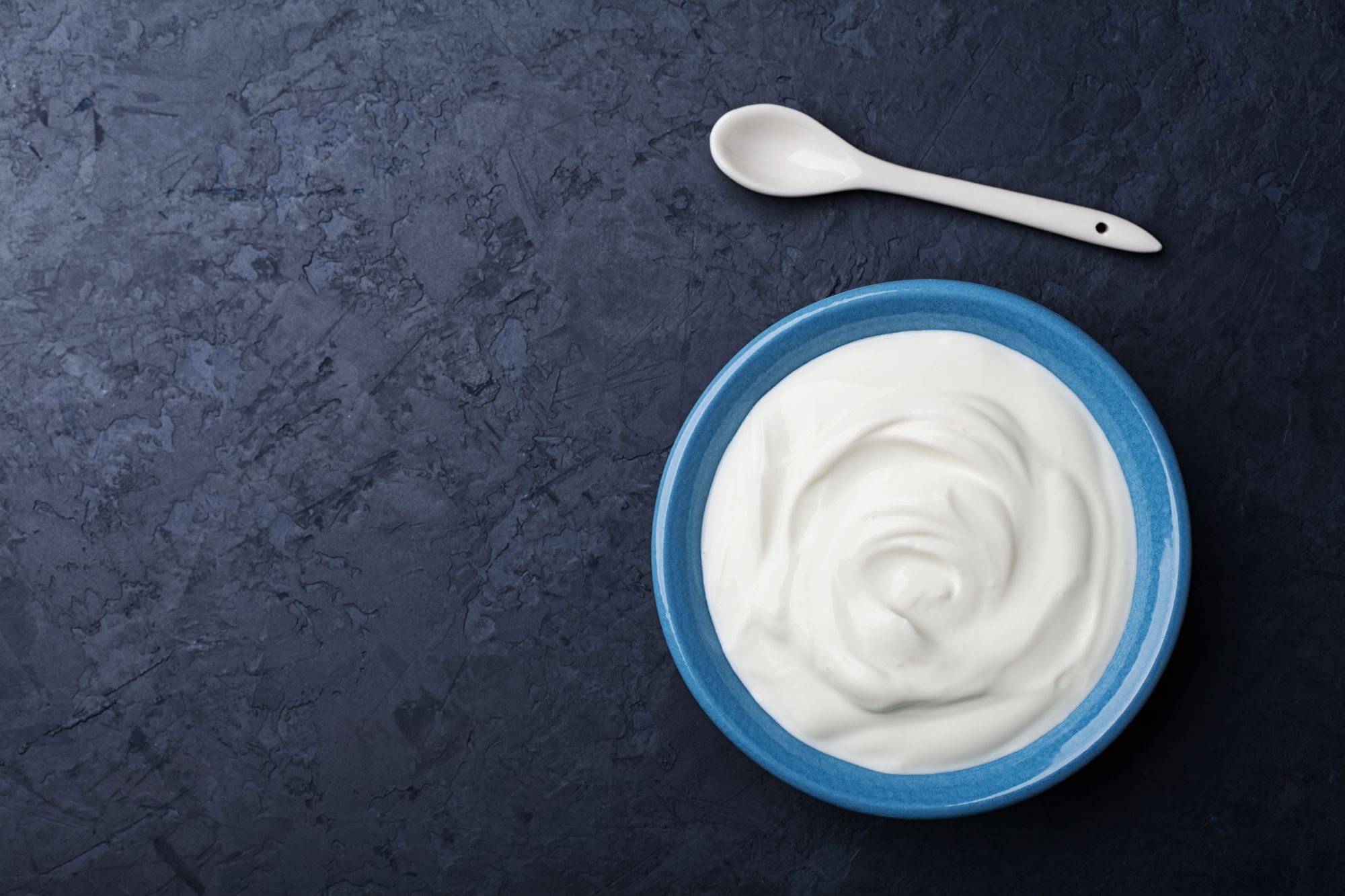
Among the dairy options, Greek yogurt stands out as a high-protein choice for weight loss, particularly as a breakfast or snack. While eggs offer 6 grams of protein per serving, Greek yogurt delivers a substantial 15-17 grams. Opting for a 2% or low-fat variant adds a dose of essential fat, promoting longer-lasting satiety. Pairing Greek yogurt with berries further boosts fiber intake and natural sweetness, enhancing its weight loss benefits.
4) Pea Protein – 21 grams per 21 gram serving
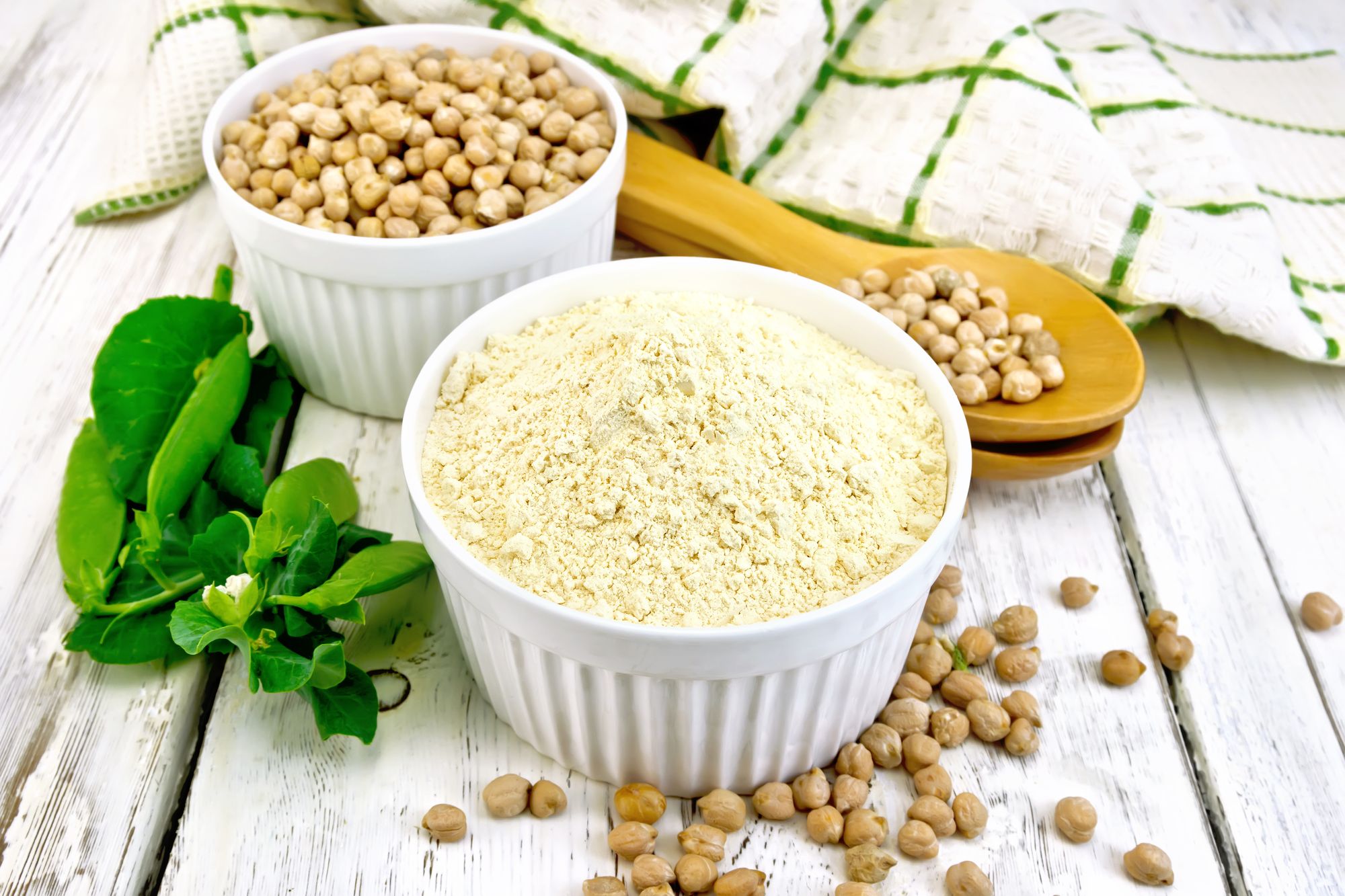
Pea protein, though lesser known, is a remarkable plant-based alternative suitable for vegans and those seeking dairy-free options. This protein source has shown promise in surpassing whey protein in suppressing hunger. Introducing pea protein into fruit smoothies offers a balanced blend of protein and fiber, maintaining stable energy levels and blood sugar, effectively curbing cravings, overeating, and potential weight gain.
5) Chicken Breast – 26 grams per 4 ounces
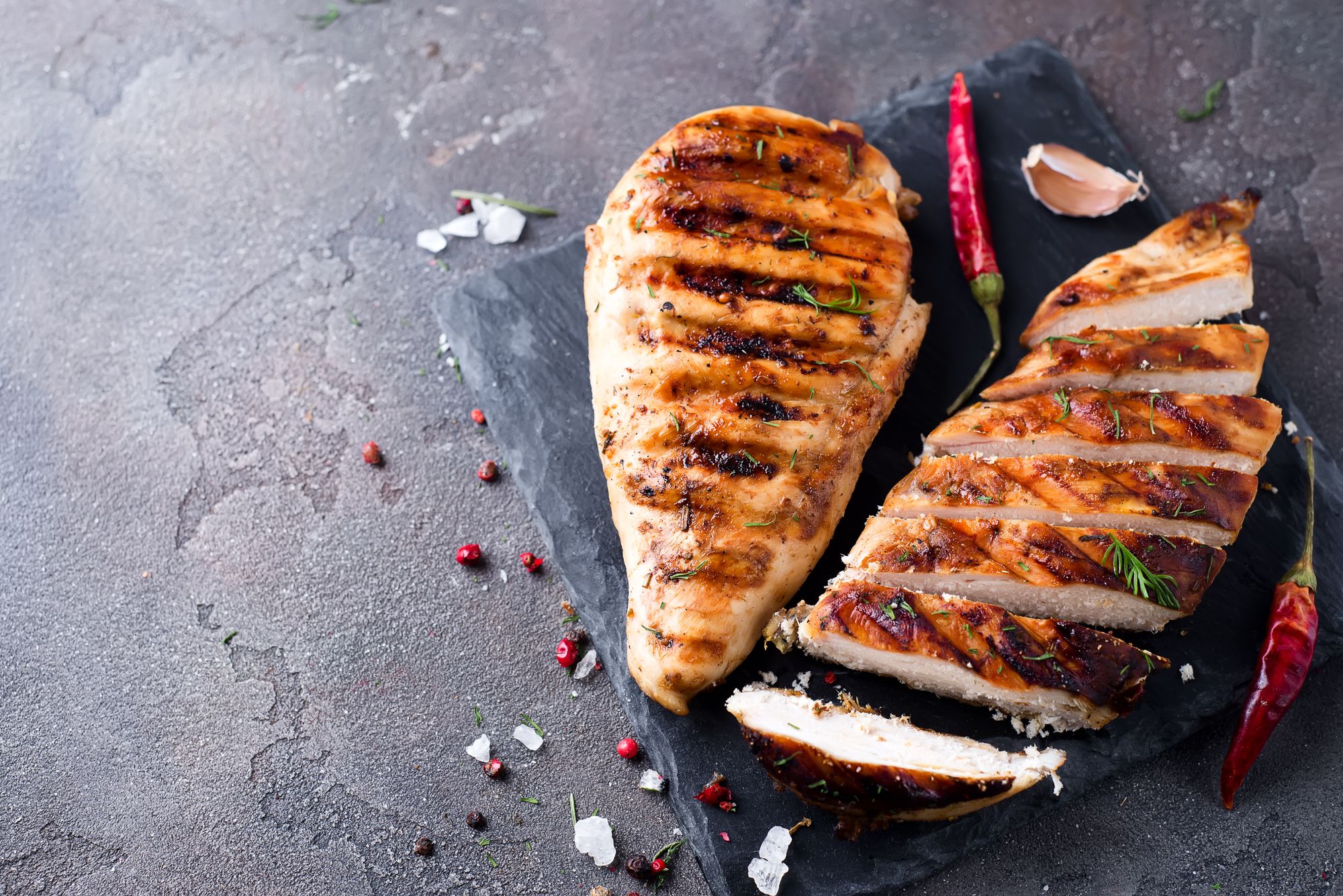
Renowned for its versatility, chicken breast ranks high as a lean protein source to aid in weight loss. With approximately 26 grams of protein per 4-ounce portion, boneless, skinless chicken breast supplies essential amino acids crucial for muscle growth, repair, and overall body functionality. Its adaptability in various culinary applications ensures it remains a staple in diverse weight loss diets.
6) Regular Yogurt – 11.9 grams per 8-ounce container
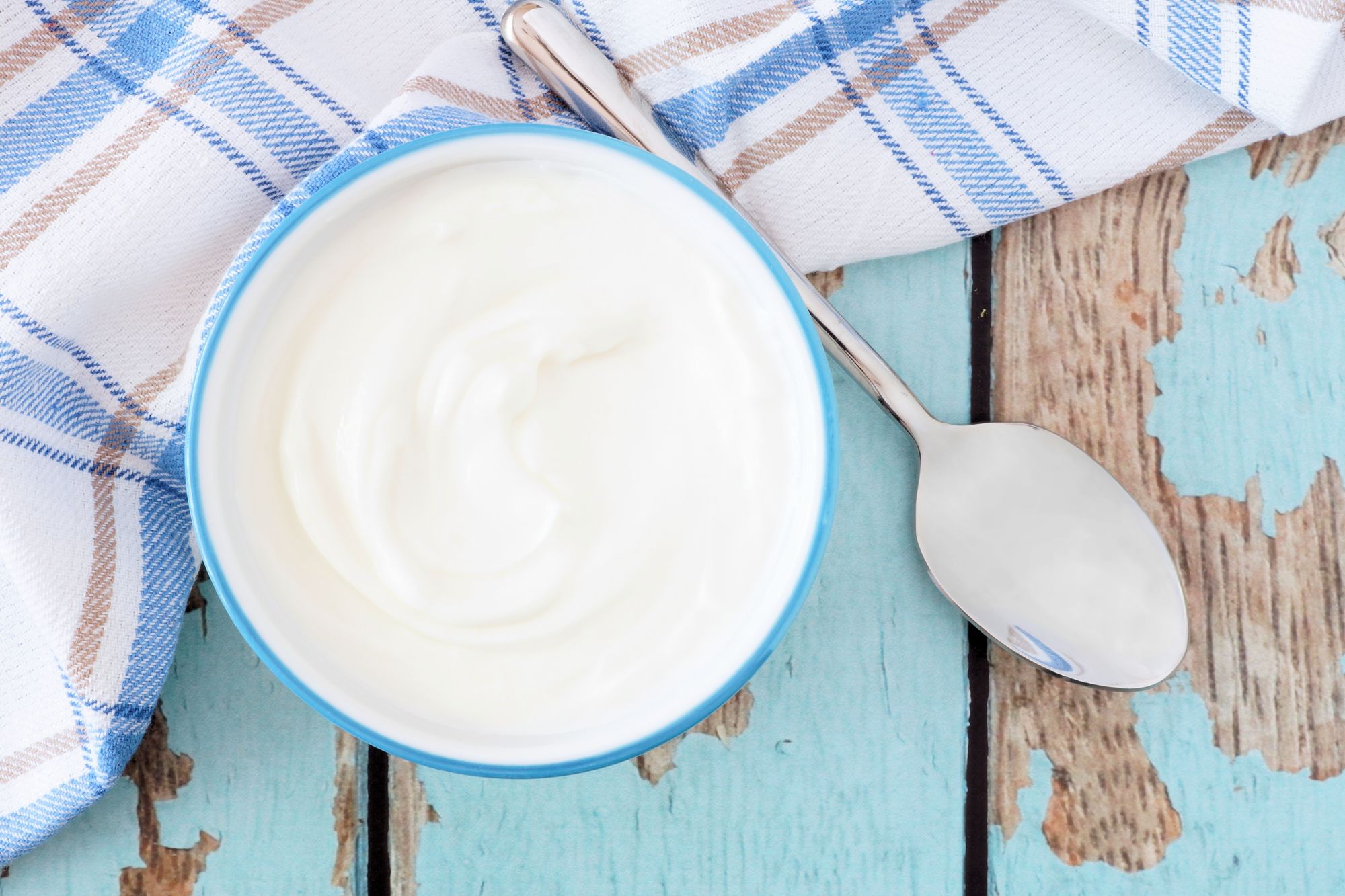
While Greek yogurt garners attention, all forms of dairy yogurt offer essential amino acids, constituting high-quality protein. Yogurt's inclusion in meals promotes fullness and sustains satisfaction between meals and snacks. Recent research affirms that increased dairy consumption, regardless of fat content, has no adverse impact on weight, BMI, blood fat levels, or blood pressure. Yogurt consumption even correlates with improved waist circumference.
7) Tuna – 24.7 grams per 3 ounces
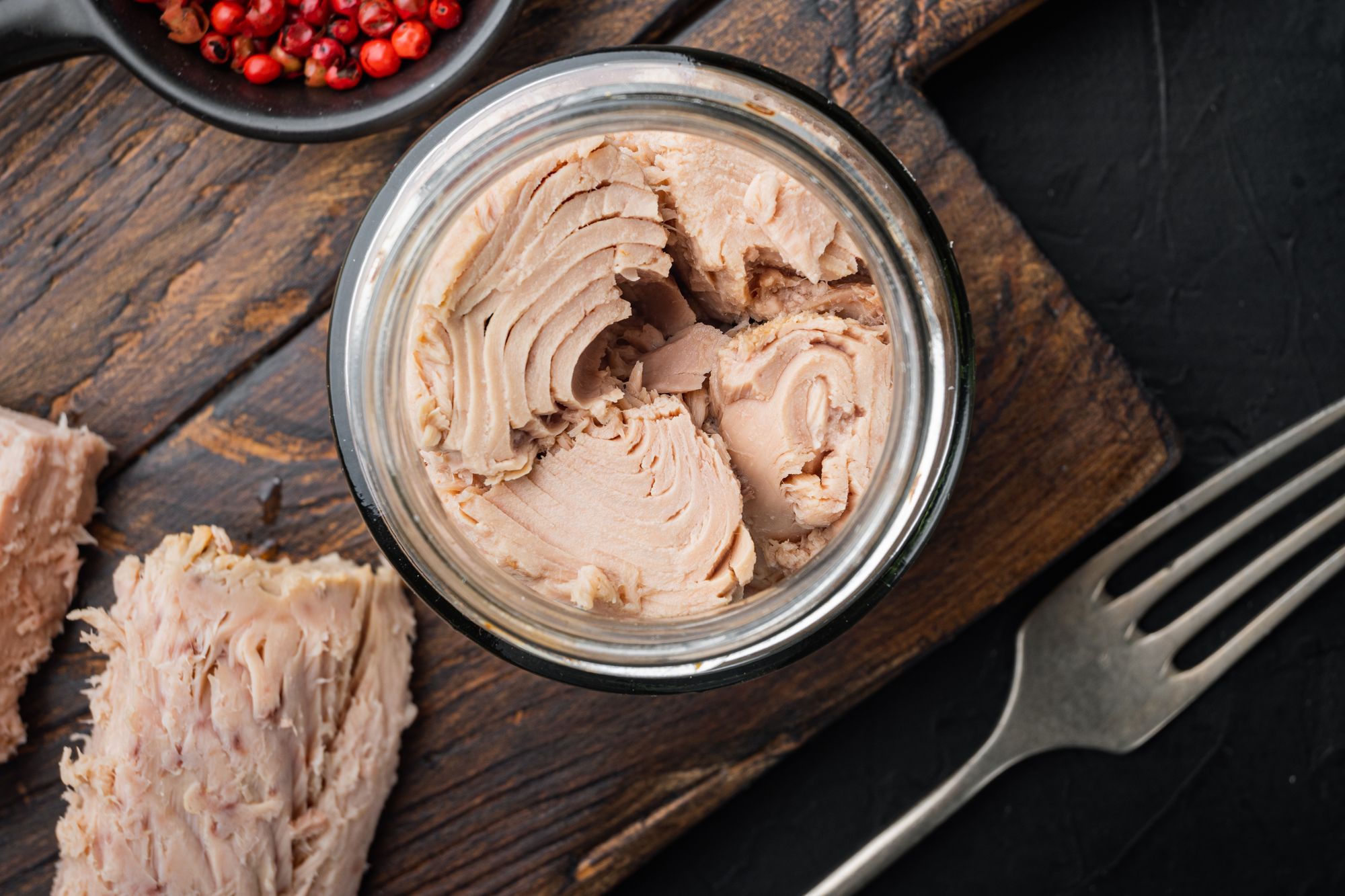
Canned tuna emerges as a straightforward means of obtaining substantial protein intake. Versatile in its uses, from salads to sandwiches, canned tuna furnishes nearly 25 grams of complete protein, accompanied by beneficial healthy fats.
8) Quinoa – 8 grams per cup
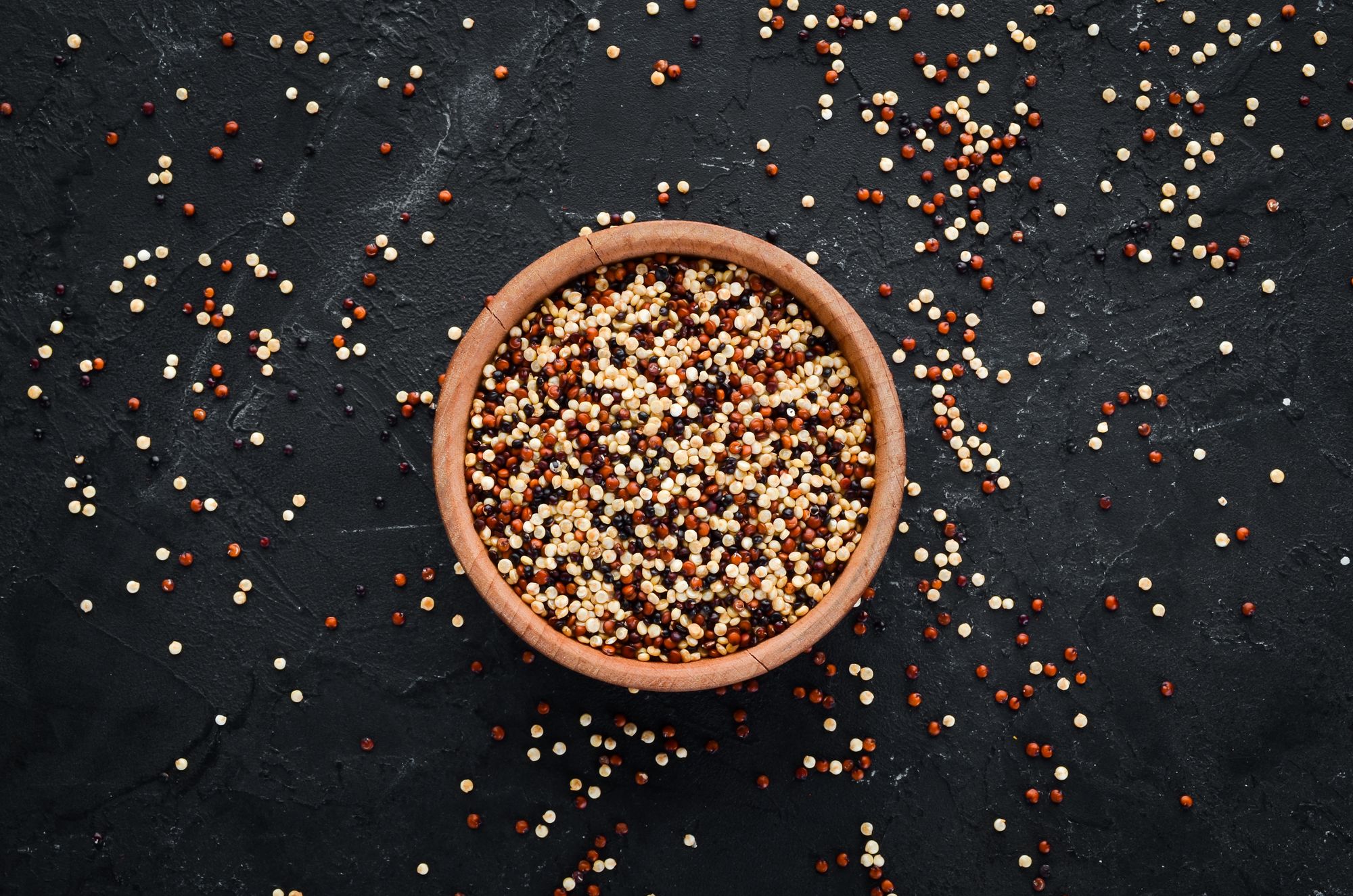
Quinoa boasts 8 grams of protein per cup and is one of the few plant-based sources of complete protein. This unique feature, alongside its carbohydrate content, positions quinoa as an exceptional replacement for white rice. Combining it with sources like chicken breast or black beans enhances its nutritional value.
9) Tofu – 9.2 grams per 3 ounces
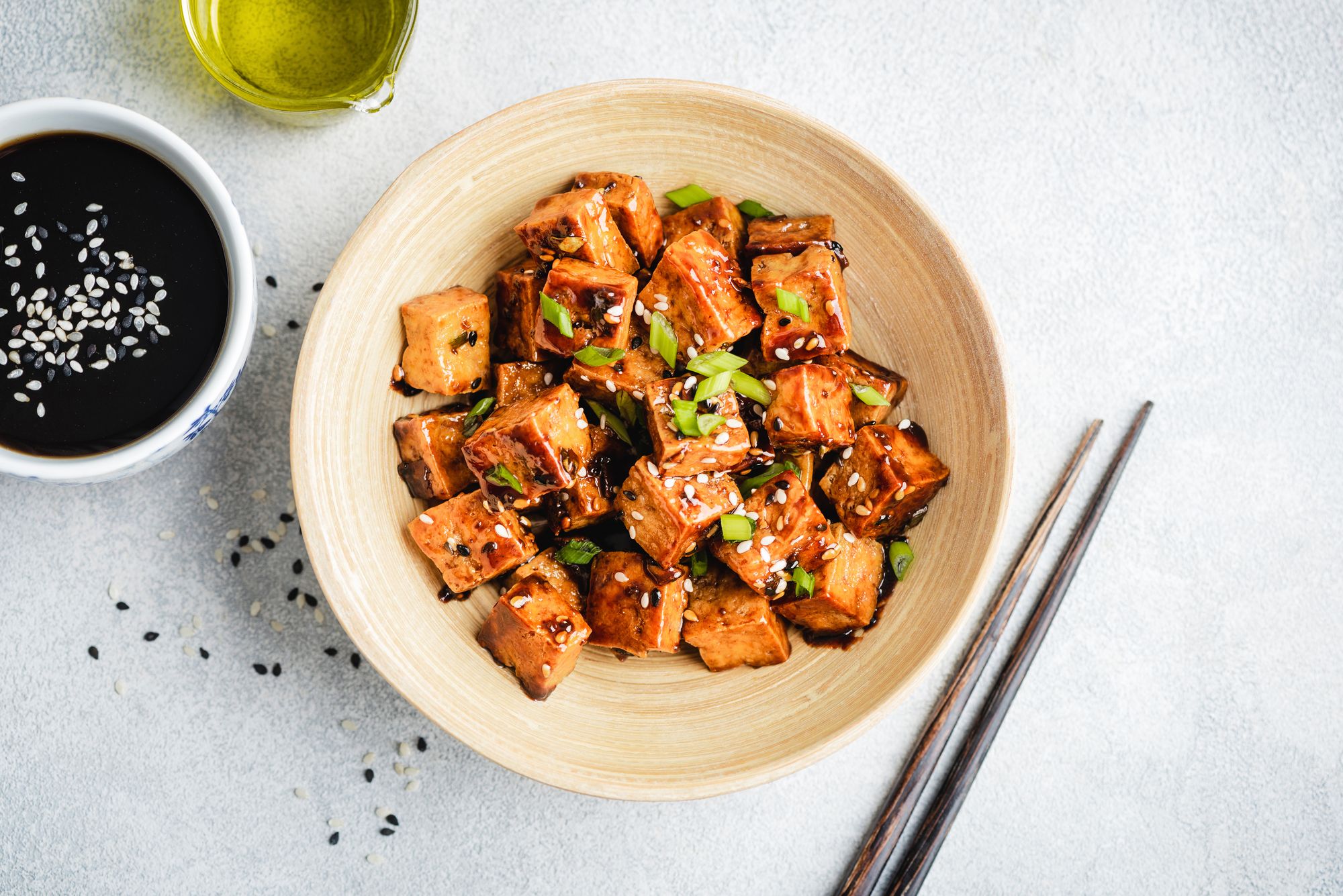
Tofu, another complete plant-based protein, offers flexibility for weight loss and general health objectives. This adaptable ingredient can be incorporated into various dishes, from sautés to smoothies. Its relatively low fat content (just over 3 grams per serving) makes it an attractive option for individuals seeking lean protein sources.
10) Salmon – 15.6 grams per 3 ounces
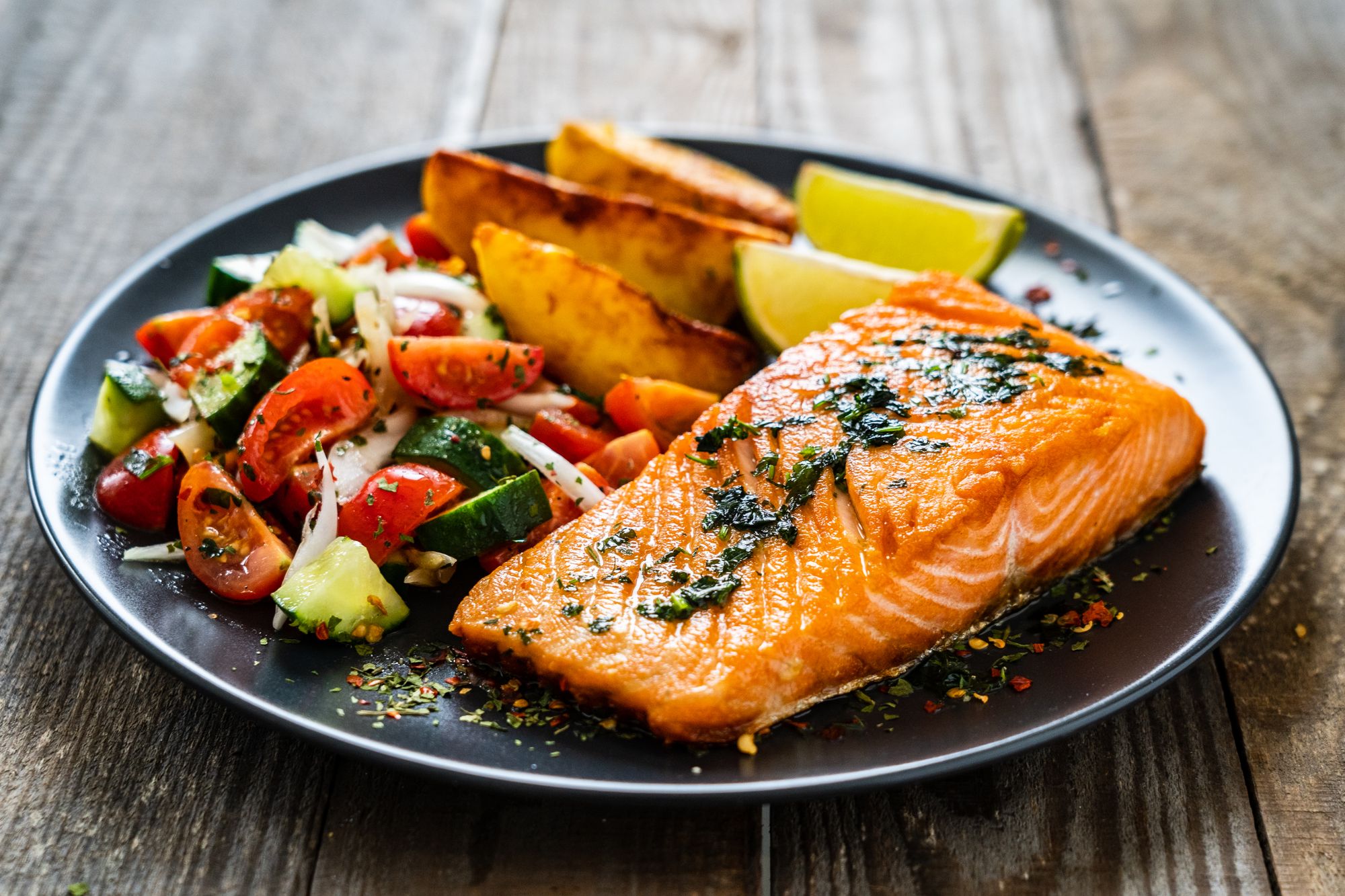
For seafood enthusiasts, adding fatty fish like salmon to their weight loss regimen is worth considering. A diet rich in omega-3 fatty acids, found in salmon, promotes satiety. Research highlights that including fish, such as salmon, in energy-restricted diets aids weight loss, showcasing the potential of seafood to enhance weight management efforts.
11) Lentils – 10 grams per 35-gram serving
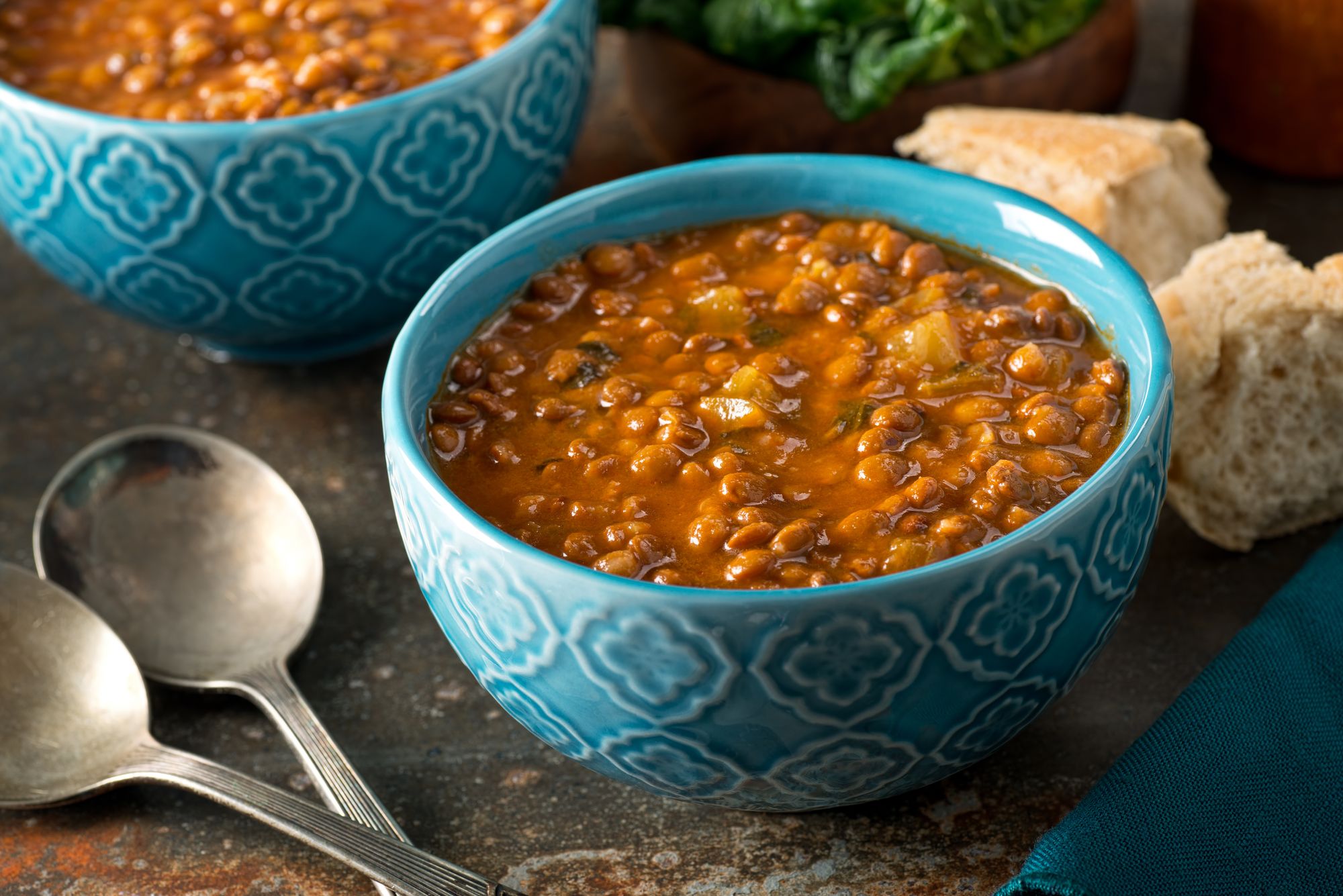
Despite being grain legumes, lentils offer valuable protein alongside essential vitamins and nutrients. Lentils provide the body with fiber, antioxidants, and essential micronutrients. Interestingly, studies demonstrate that incorporating lentils into the diet supports weight loss even without caloric restrictions. Substituting lentils for fatty meat choices is a practical approach to promoting weight loss.
12) Walnuts – 4.3 grams per ounce
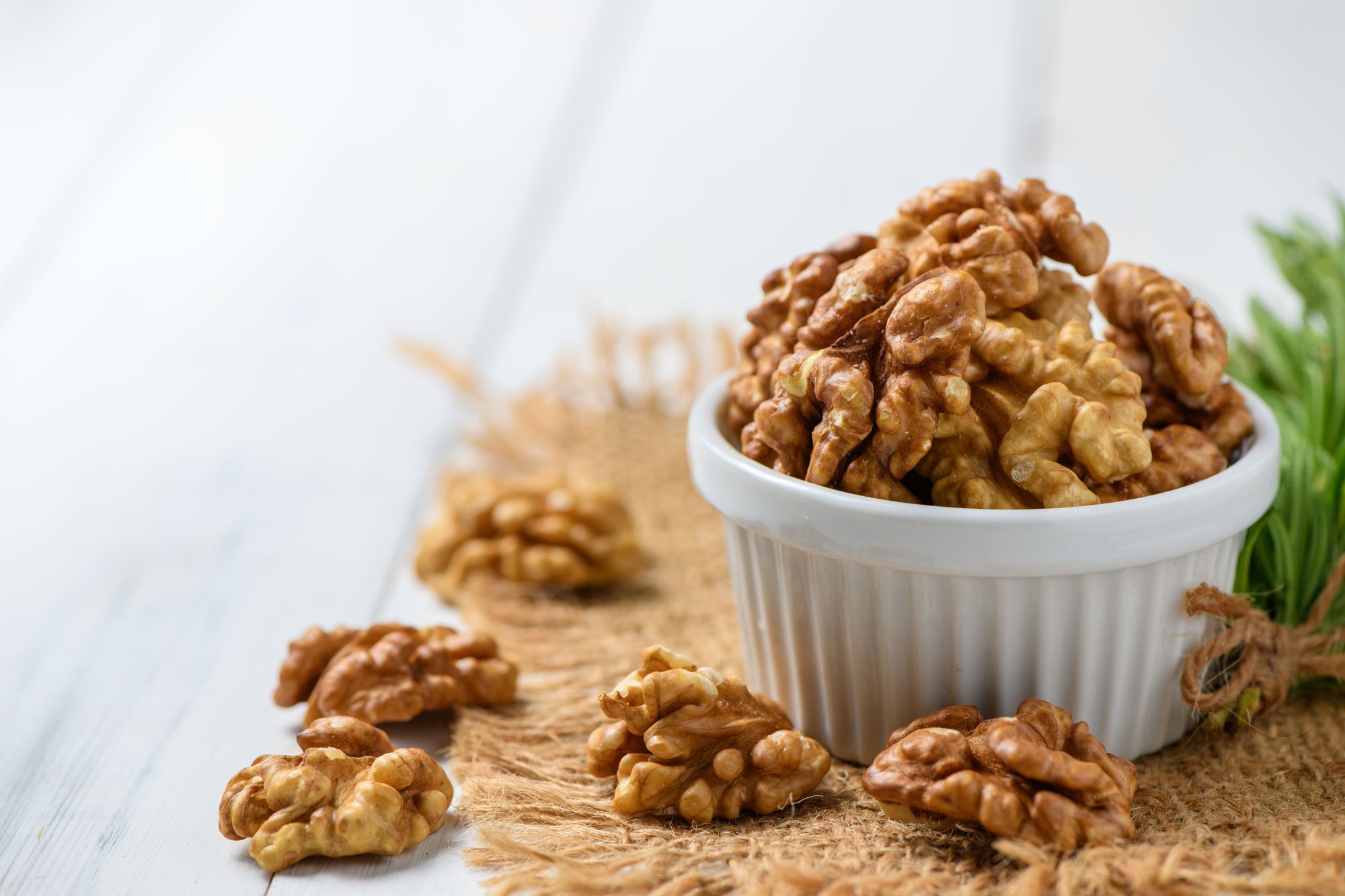
Walnuts contribute to weight loss efforts by promoting satiety and mitigating long-term weight gain. The inclusion of nuts in daily consumption correlates with reduced weight gain and lower obesity risk. Walnuts, specifically, boost satiety and long-term weight loss due to their rich content of alpha-linolenic acid (ALA), a plant-based omega-3 fatty acid.
13) Whey Protein Powder – 20 grams per 25.3 gram serving
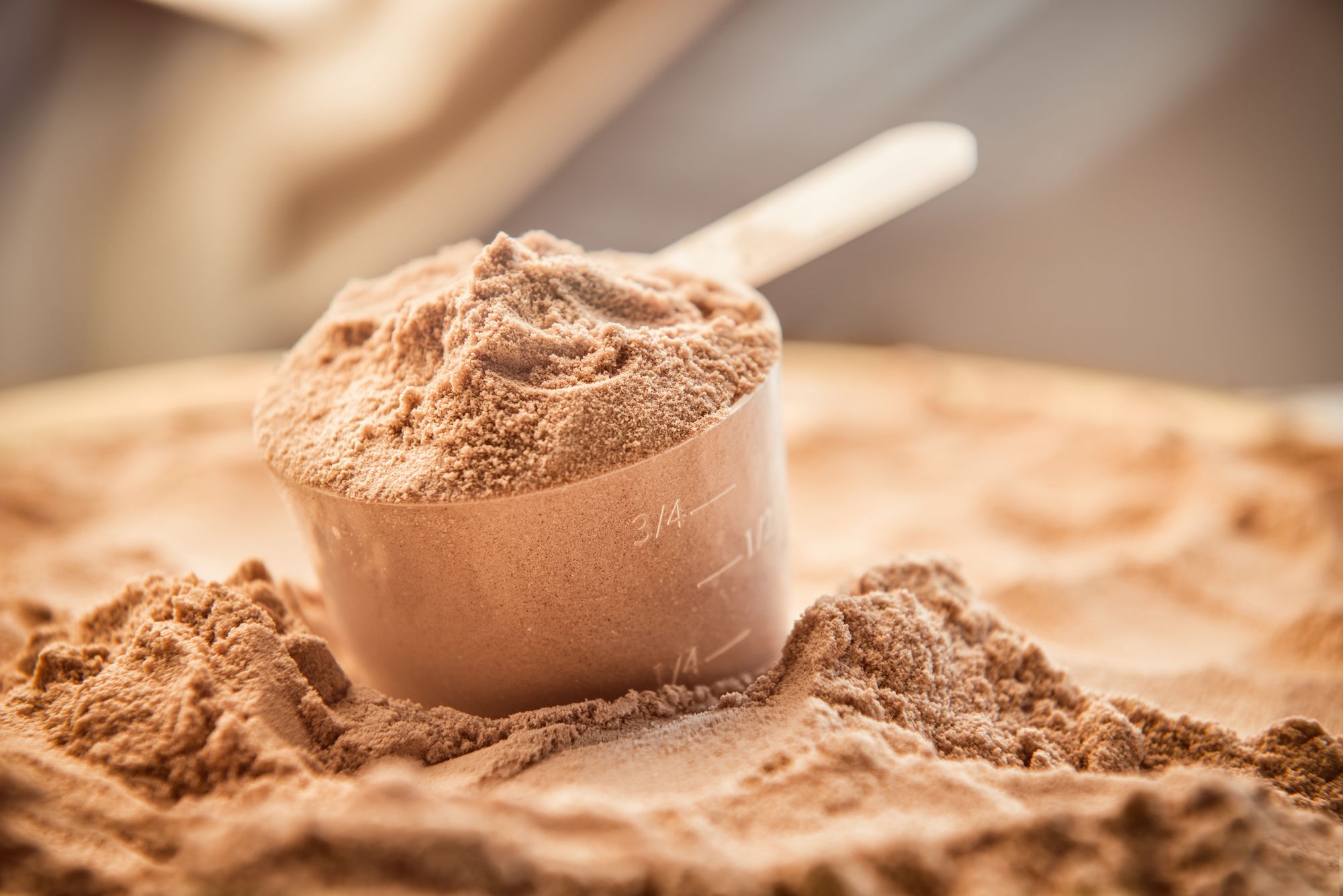
For those seeking a protein supplement, whey protein presents a compelling option. The rapid absorption of whey protein, along with its composition of essential amino acids, accelerates the sensation of fullness. Extensive research supports whey protein's efficacy in reducing body fat and increasing lean muscle mass, while also curbing food cravings throughout the day.
14) Casein Protein Powder – 20 grams per 33 gram serving
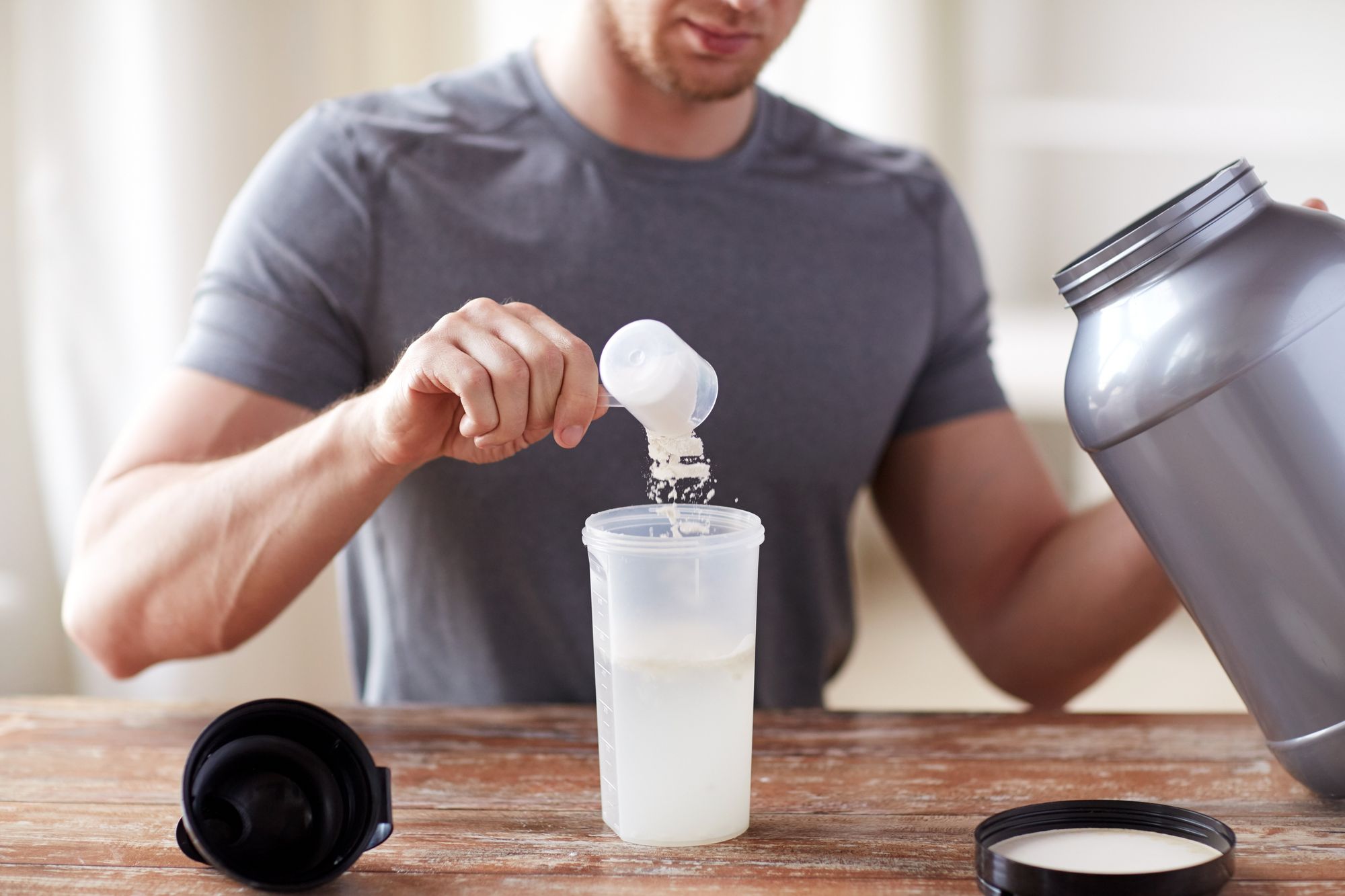
Casein protein, distinct from whey protein, offers a slower absorption rate in the body, resulting in prolonged satiety. While whey protein is associated with muscle growth, casein protein excels in its ability to foster fullness. Its sustained-release nature sets it apart as an effective choice for hunger management.
15) Low-Fat Cottage Cheese – 14 grams per 4 ounces
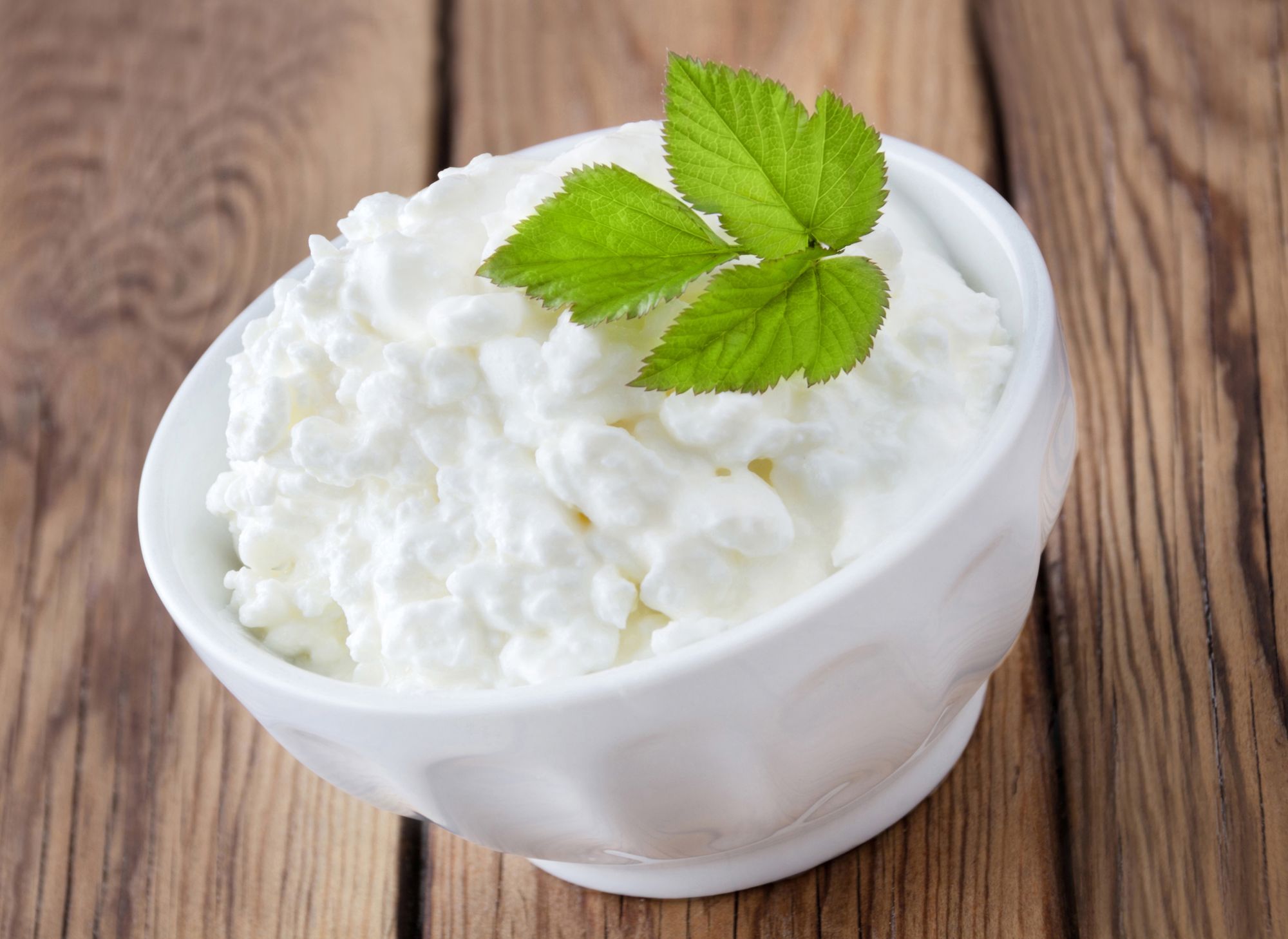
While not immediately associated with high protein content, certain variations of cottage cheese yield significant protein while keeping fat and sugar content in check. Opting for a 2% variety grants over 24 grams of protein, accompanied by 5 grams of fat and 9 grams of sugar (from lactose). Enhancing flavor with fruits or honey adds both taste and nutrition to this underestimated protein source.
Suboptimal Protein Choices for Weight Loss
While protein-rich foods can certainly aid weight loss, it's essential to be discerning about the choices you make. Not all protein sources are created equal, and the following options might not align with your health and weight loss goals.
1) Sausage
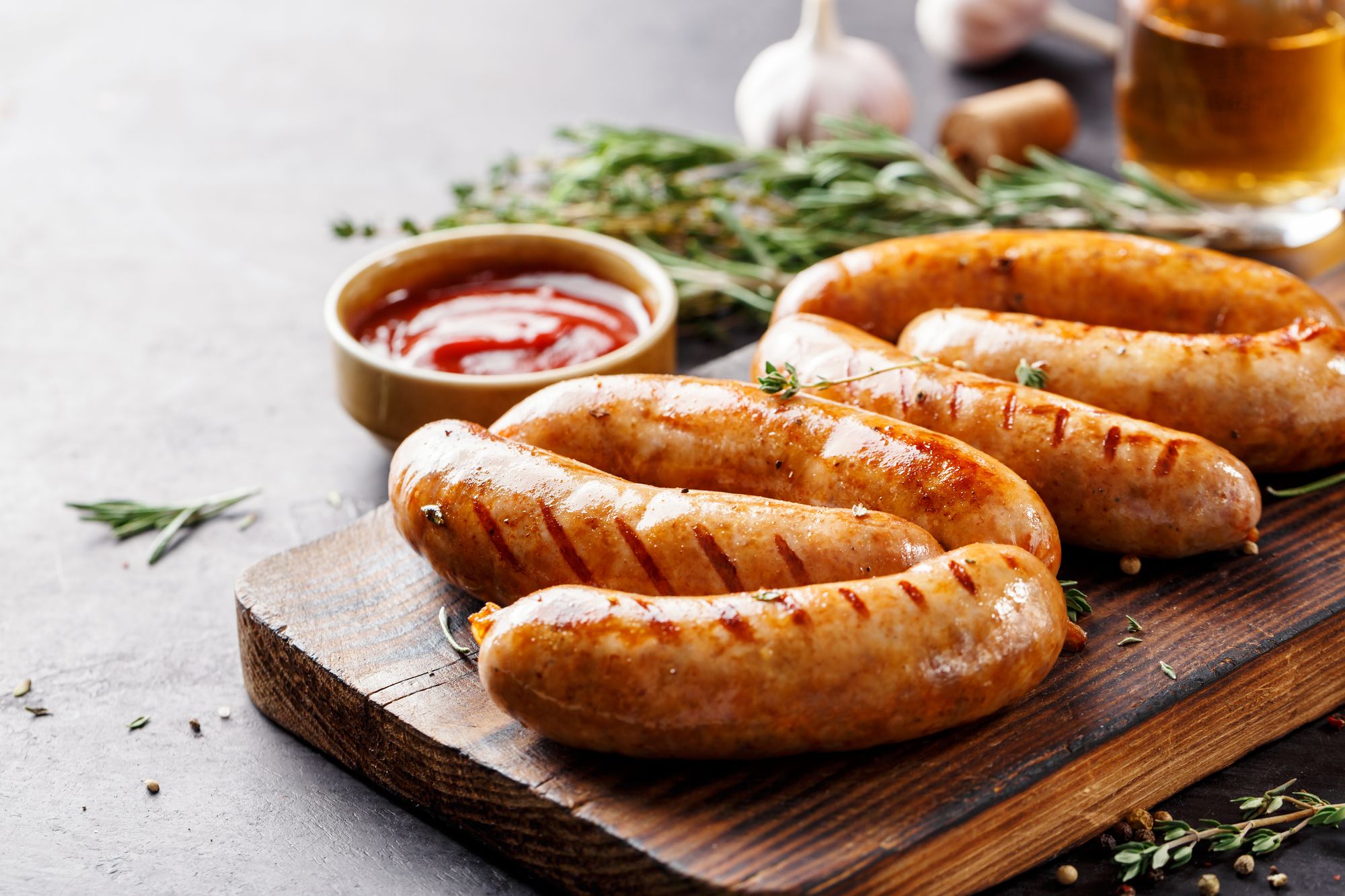
Grilled sausages might be a favorite for many, but they can be a dietary pitfall. "Numerous sausage varieties are brimming with saturated fat and carry a hefty calorie load, factors that work against weight loss," cautions Lauren Manaker. Moreover, research highlights a connection between the consumption of ultra-processed foods, including sausages, and weight gain. To mitigate this, consider swapping traditional red meat sausage for alternatives such as chicken, turkey, or plant-based options. Nonetheless, scrutinizing nutrition labels is imperative, as these substitutes can still contain excessive sodium, fat, and preservatives.
2) Sugary Protein Bars
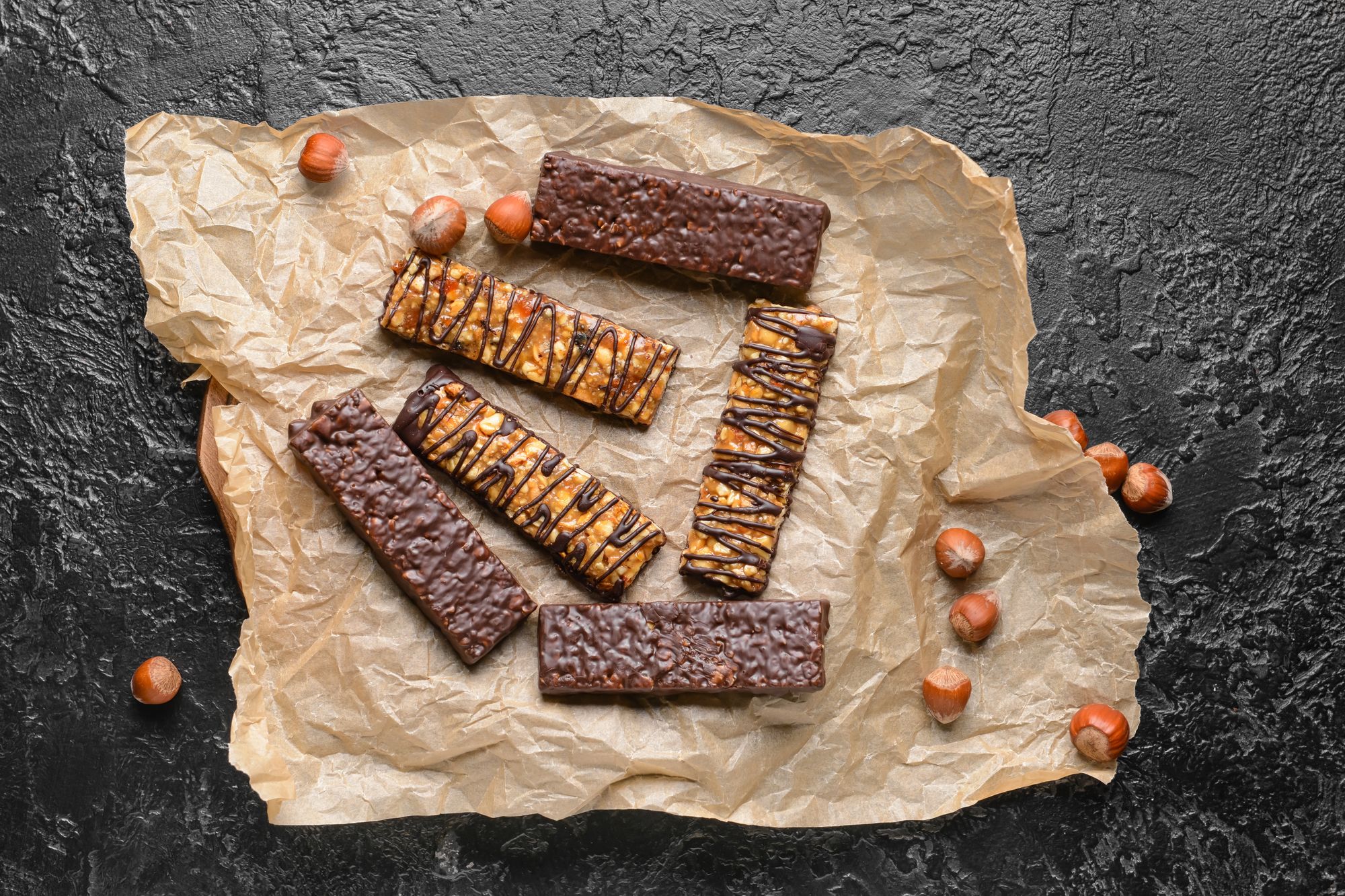
Don't be deceived by the label "protein bar." While it might imply a nutritious choice, many commercially available protein bars are replete with added sugars, sodium, and fats. While you're getting a protein boost, there are more health-conscious alternatives for snacking. For instance, take the PowerBar Protein Plus Chocolate Brownie Bar, boasting 30 grams of protein, but at the cost of 9 grams of fat, 330 calories, and 21 grams of sugar. Opt for options that provide protein without the undesirable extras.
3) Rice Protein Powder
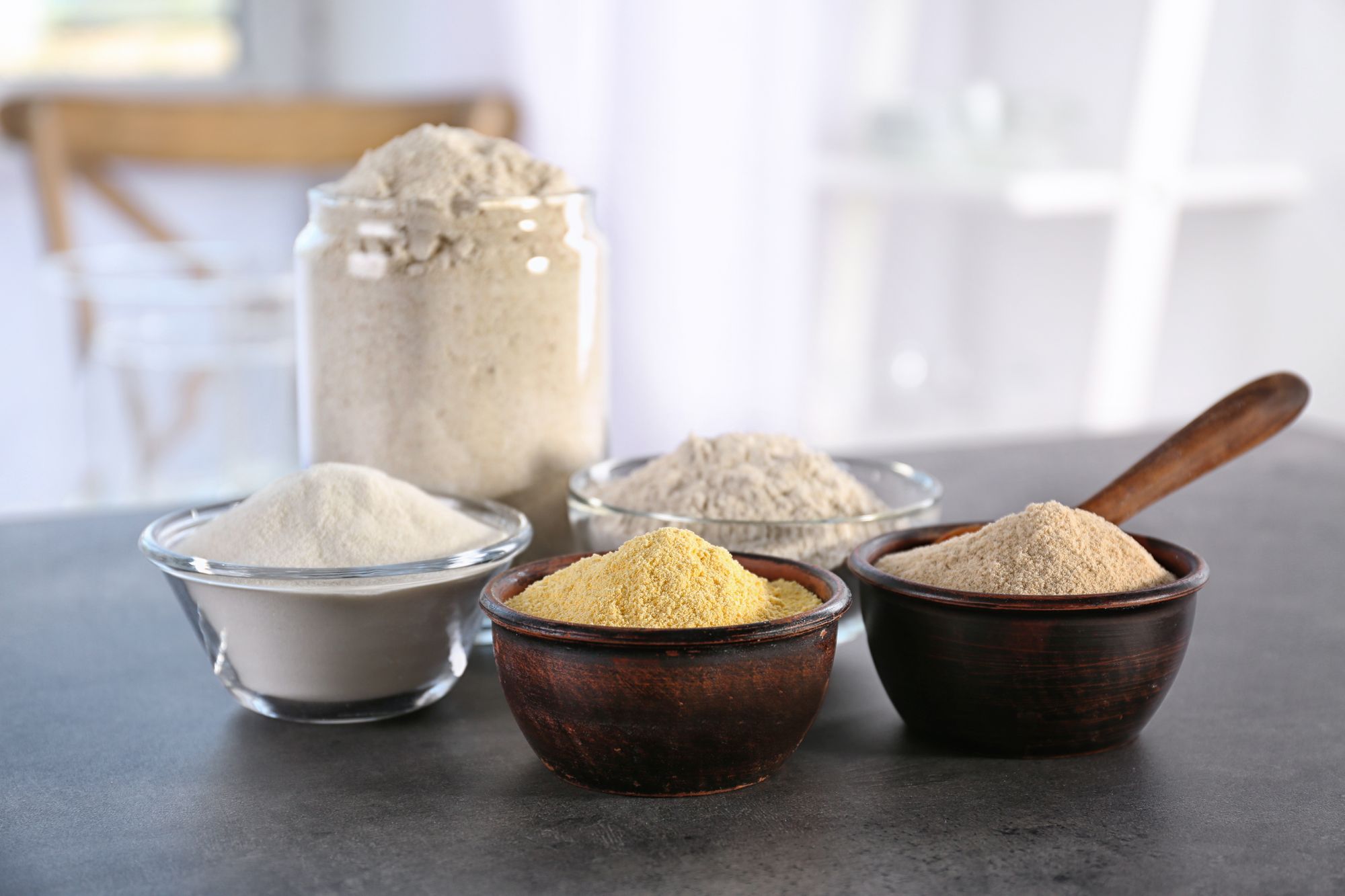
Rice protein powder, though less known than other varieties, might not be your ideal companion for weight loss. While it's favored among those following a plant-based diet, Courtney D'Angelo emphasizes its potential drawbacks for weight loss outcomes. "Rice protein might not be the most suitable choice for weight loss due to its incompleteness as a plant-based protein, particularly its low lysine content," D'Angelo explains. Research reveals that studies on rice protein have demonstrated limited differences in muscle mass and minimal, if any, weight loss results. When pursuing weight loss goals, exploring other protein powder options might be more beneficial.

